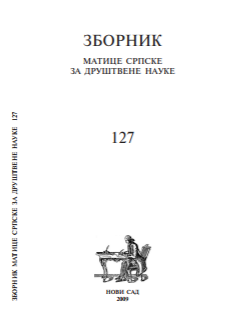ПОЛИТИЧКО-ЕКОНОМСКИ АСПЕКТИ ТРАНЗИЦИЈЕ У МАЂАРСКОЈ
POLITICO-ECONOMICAL ASPECTS OF TRANSITION IN HUNGARY
Author(s): Alpar LošoncSubject(s): Sociology, Government/Political systems, Political economy, Transformation Period (1990 - 2010)
Published by: Матица српска
Keywords: Transition; capitalism; democracy; political economy of patience;
Summary/Abstract: In the first part of the article the author portrays the past as the resource for the post-socialist transition in Hungary. He emphasizes that the market-based reforms in Hungary and exit for the Hungarian citizens into the small markets outside the state property system prove to be an asset for the transition. In the second part of the article the author delineates the specificities of Hungarian transition especially the externally-dependent form of emerging capitalism developed by the reforms in the 1990s. Besides, he deals with the fragile relationships between the capitalism and democracy in Hungary concerning the role of trade-unions and measures concerning the work place. It is important to contextualize the Hungarian case within the frame of post-socialist transition and take into account its uniqueness. In the last part the author points to the problems Hungary confronts during the implementation of the so-called second-generation of transition reforms.
Journal: Зборник Матице српске за друштвене науке
- Issue Year: 2009
- Issue No: 127
- Page Range: 9-32
- Page Count: 24
- Language: Serbian

